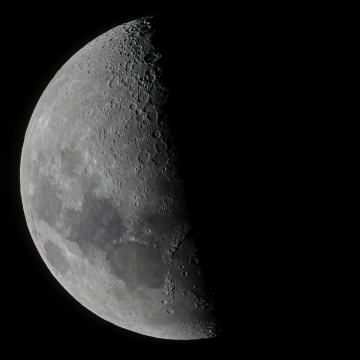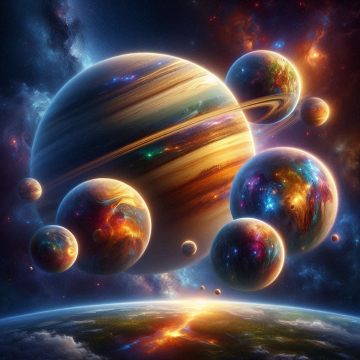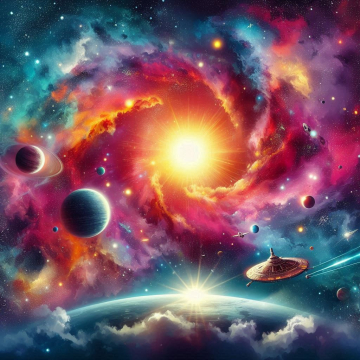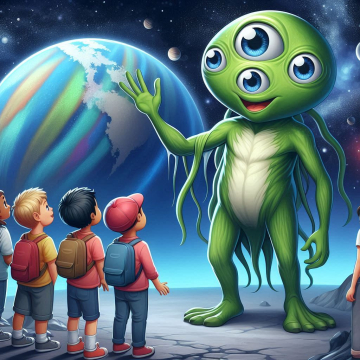The Moon, with its cyclical presence in the night sky, has been an object of fascination and speculation throughout human history. Beyond its aesthetic beauty, various cultures have attributed significant influences on daily life and the human psyche to the lunar phases. Let's explore the relationship between the phases of the Moon and its supposed influence on man, unraveling myths, examining scientific evidence and considering the reality behind this ancient belief.
Myths and Cultural Beliefs:
Civilizations throughout the centuries have woven myths and legends around the Moon, associating its phases with events and changes in human life. Since ancient times, some cultures have believed that the Moon has a direct influence on people's emotions, behavior, and even their destiny. These myths, passed down from generation to generation, have contributed to the construction of a cultural narrative around the Moon.
The Moon in Astrology:
Astrology, with its historical roots, has assigned the Moon a prominent role in determining individual personalities and destinies. Moon phases are considered key factors in astrological interpretation, influencing people's emotional characteristics and decision-making depending on the position of the Moon in its cycle.
Effects on Sleep and Behavior:
There is a popular belief that the phases of the Moon can affect sleep and human behavior. Some people maintain that during the full moon, for example, they experience difficulties falling asleep or that changes in mood often occur. Although these claims are widespread, the scientific evidence behind such assertions is the subject of debate.
The Moon and Emotional Tides:
Another long-held belief suggests that the phases of the Moon can influence so-called "emotional tides." It is argued that during the full Moon, people tend to experience more intense emotions or unusual behaviors. Despite the lack of scientific consensus, this idea has persisted in popular culture and the collective imagination.
Impact on Popular Psychology:
The belief in the lunar impact on emotions has permeated popular psychology. Many people attribute changes in their mood, energy levels, and sleep patterns to the phases of the Moon. The idea that the full Moon, in particular, can lead to an increase in emotional activity has been widely accepted, although scientific evidence does not conclusively support this perception.
Scientific Studies on Emotions and the Moon:
The relationship between the phases of the Moon and emotions has been the subject of several scientific studies, although the results have been inconsistent. Some research suggests that there is no significant correlation between moon phases and emotional states. However, other studies have identified possible links between the full moon and certain sleep disorders or behaviors, although conclusions vary and more research is needed.
Psychology and Individual Variables:
Modern psychology highlights the importance of individual variables in emotional experience. Factors such as genetics, environment, personal experiences, and mental health have a significant impact on how people experience and express emotions. Although the Moon can influence nighttime luminosity and, therefore, the circadian cycle, the direct connection with emotions is a more complex and multifaceted field.
Theories of Lunar Influence:
Various theories have tried to explain how the Moon could influence emotions. One of them suggests that the greater brightness during the full Moon can affect sleep patterns, which in turn could have an impact on mood. Other theories explore how lunar gravity, although weak compared to Earth's, could exert a subtle influence on the body's fluids and, therefore, the brain.
Cultural and Contextual Variability:
The Moon's perceived influence on emotions can vary significantly across cultures and contexts. Cultural beliefs and traditions play a crucial role in the interpretation of natural phenomena, and the idea of "emotional tides" may be more prominent in certain communities than others.
Reflections on Reality and Perception:
Although science does not conclusively support a direct lunar influence on emotions, it is essential to recognize the importance of perception and subjective reality in the human experience. The connection between the Moon and emotions, even if more symbolic than causal, has contributed to the richness of cultural and literary narratives over time.
Importance of Moonlight and Biological Rhythms:
Beyond "emotional tides," lunar light can have significant impacts on human biological rhythms. The brightness of the Moon can affect sleep and circadian patterns, which in turn can have implications for emotional and mental well-being.
Scientific Research:
Science, with its objective approach, has addressed the question of lunar influence on human life. Numerous studies have examined the possible correlation between lunar phases and various aspects, such as sleep, behavior, and crime rates. However, the results have been largely inconsistent and have not provided a solid basis to support popular beliefs.
The Influence on Agriculture:
In some traditions, the lunar phases have also been associated with agriculture and gardening. Certain times of the lunar cycle are believed to be more favorable for planting, harvesting, or other agricultural activities. Although these beliefs have historical roots, the scientific validity of these practices is under scrutiny.
Menstrual Cycles and the Moon:
A widespread belief suggests that the phases of the Moon are linked to female menstrual cycles. Some cultures have connected the length of the lunar cycle to the length of the menstrual cycle. However, scientific studies have refuted this idea, finding no direct and consistent correlation between menstrual cycles and lunar phases.
Current Realities and Perspectives:
As science advances and understanding of the cosmos expands, the perception of the Moon and its influence on humanity is undergoing critical review. Beliefs based on myths and traditions encounter challenges in light of contemporary scientific evidence, which tends to disassociate the Moon from direct influence on many aspects of human life.
The phases of the Moon have played a prominent role in cultural and spiritual beliefs throughout history, shaping myths, practices and traditions. However, the reality behind the Moon's supposed influence on man is more complex than popular narratives suggest. Science, although it has failed to support many of these beliefs with conclusive evidence, continues to explore the mysteries of the Moon and its relationship with the Earth. Ultimately, as long as the lunar phases remain a cause for awe and contemplation, understanding their influence on human life remains a fascinating field of exploration between science and culture.






